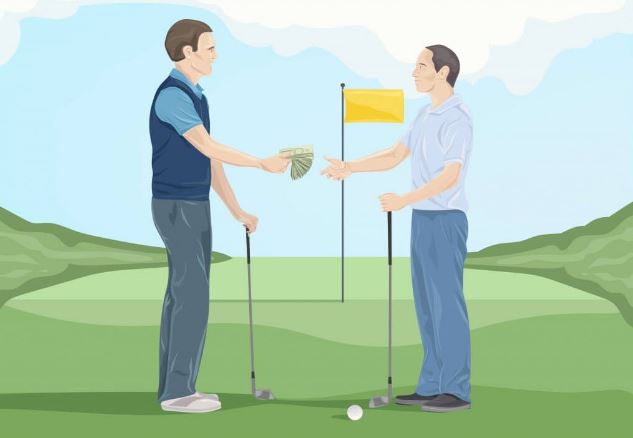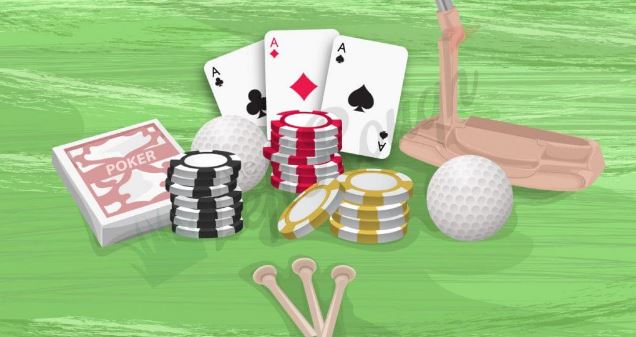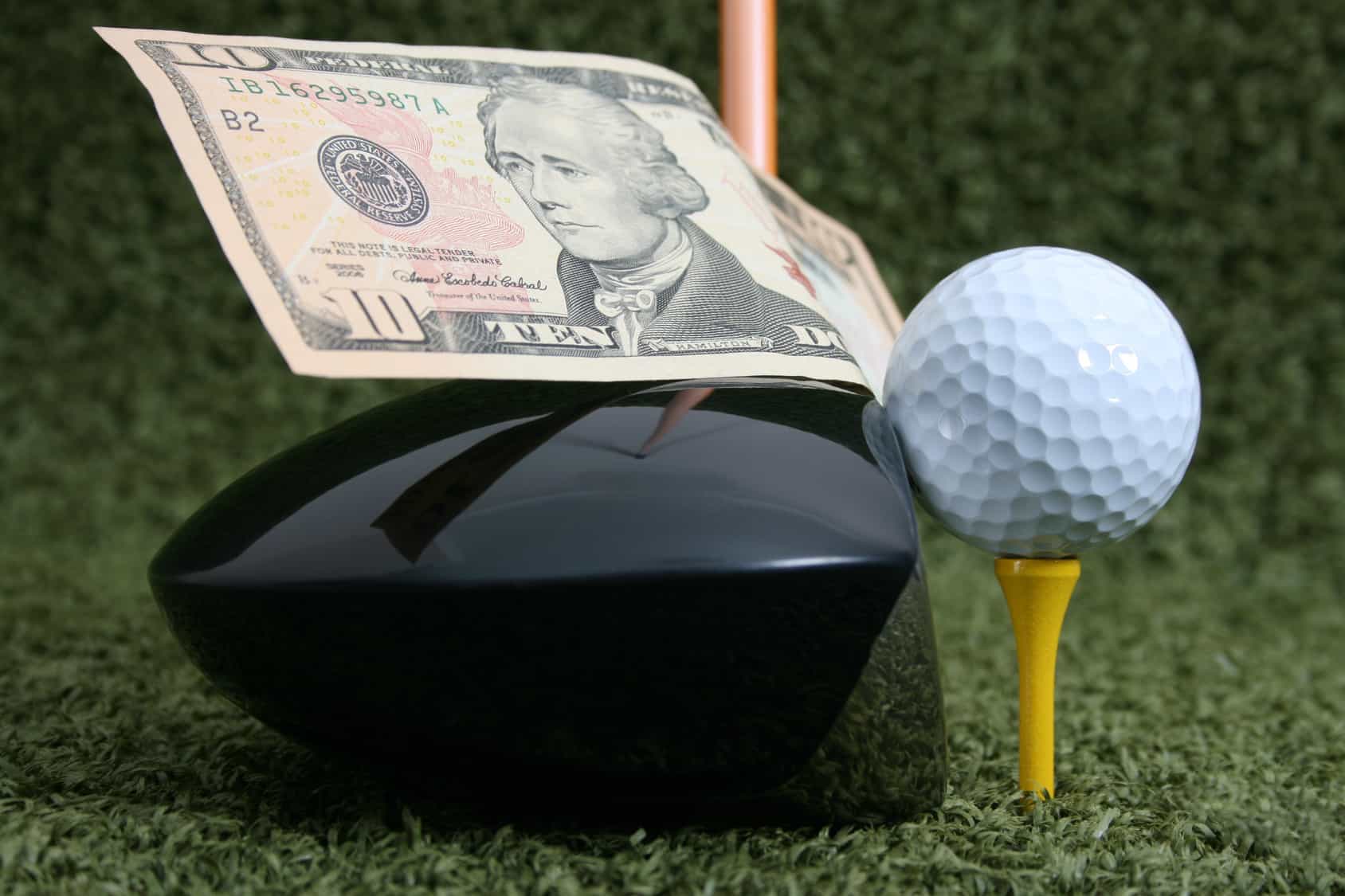
BOSTON – Most people who gamble are able to enjoy it as occasional entertainment. But for some, gambling becomes an addiction. For them, the compulsion to gamble is much like the compulsion alcoholics feel about drinking. Gambling addiction can affect all aspects of a person’s life.
It turns out there are different kinds of gambling disorders. Each has its own dangers and its own set of effective remedies.
Let’s start with the most serious: gambling addiction.
What Are the Symptoms of Gambling Addiction?
Psychologists say that gambling disorders affect up to 3% of adults in the United States, men more often than women. Not all gamblers – and not all problem gamblers – are addicts.
While a diagnosis of gambling addiction should be made and confirmed only by trained professionals, gambling problems can be easy to spot in yourself or in someone you know.
One of the most common symptoms of gambling addiction disorder is a preoccupation with gambling. Addicts lose interest in other aspects of life such as family and work responsibilities. They have trouble controlling their impulsive urges to gamble. They often conceal the amount of time and money they spend gambling. And gambling addicts often deny that they have a problem.
What Types of Gamblers Are There?
It was the psychiatrist Robert L. Custer, the US Veterans Administration’s chief of treatments services for the mental health and behavioral science services, who conceived and documented a medical model of gambling addiction in the 1970s. “We’re dealing with a behavior disorder,” he said. “The key to the problem is psychological addiction.”
Custer knew that gambling cravings are not always pathological. Most people are able to gamble now and then without risking addiction. Modern surveys report that most Britons who visit casinos are casual gamers, while only 3-5% suffer from serious gambling problems.
Custer came up with a list of six gambling “types”:
1. Professional Gamblers
For professionals, gambling is an occupation. Professionals aren’t addicted. They use statistics and calculations to outplay their opponents. They view gambling as a way of making money rather than something they do for pleasure or excitement. They choose games and bets they believe they can win more often. Professionals generally don’t crave gambling the way addicts do.

2. Antisocial Personality Gamblers
Individuals in this category suffer from antisocial personality disorders. These disorders are often associated with issues such as alcoholism, drug abuse and compulsive gambling.
People with antisocial personality disorders often start gambling early in life. They are more likely to be involved in match-fixing and other illegal aspects of gambling. While not all gamblers who fall under this category are addicted, they are, statistically speaking, vulnerable to addiction. Moreover, they can develop problematic gambling behaviour and manipulate others.
3. Casual Social Gamblers
Most Britons who visit casinos, bookmakers, and bingo halls, whether in person or online, fall into the “casual social gamblers” category. They bet infrequently and view gambling as a recreational activity. One significant difference between them and gambling addicts is that they are more likely to have a variety of interests other than gambling.
Gambling addicts, on the other hand, display unhealthy obsessiveness and rarely have other hobbies.
It is not uncommon for casual social gamblers to become gambling addicts. They can develop an addiction over time, especially after experiencing a huge win or after losing money gambling.
4. Serious Social Gamblers
Serious social gamblers look at gambling as their primary source of entertainment. That doesn’t make them addicts, however, as they can go a long time without participating in a game or making a bet. This is what sets them apart from those who have severe gambling problems.
People belonging to this category are more similar to football fanatics than to gambling addicts. Still, this doesn’t mean they can’t get addicted over time. In fact, they have an increased chance of developing a gambling disorder.
5. Relief and Escape Gamblers
It’s common for people suffering from anxiety and depression to seek ways of escaping from reality. Some of them try to find solace in gambling. They see placing bets as an alternative to dealing with feelings of sadness, loneliness, boredom, and anger. For them, gambling plays the role of emotional relief for something they’re unable to verbalize.
Relief and escape gamblers usually don’t have trouble staying in control when gambling. Individuals who fall into this category can develop a gambling disorder if all other problems in their life can lead to “chasing” – a common sign of compulsive gambling and other disorders.
6. Compulsive-Pathological Gamblers
These are the people with the least control over their gambling habits. It’s common for them to have zero control over their gambling activities. And that’s not all.
Once they develop a gambling addiction, they’re quite likely to abuse drugs and alcohol. They often associate self-worth with winning and losing bets, which can lead to more serious problems. In addition, compulsive-pathological gamblers often experience mood disorders, which multiplies the effects of gambling on all other aspects of their lives. Experts agree that a compulsive gambling disorder can have devastating effects on an individual’s family, social and professional life.
Types of Gambling Addictions
There are two main types of gambling addiction. Individuals belonging to these two groups usually engage in the same kinds of gambling. Slot machines and card games are the most popular among them, but gambling addicts also tend to buy lottery tickets and bet with friends and family members.
The most common gambling addiction occurs when an individual believes gambling is the only solution to repairing a broken financial situation. Their problems with finances are usually a direct result of gambling. They develop a gambling disorder and enter a cycle in which they feel they have to win money through gambling to pay off their gambling debts. More often than not, the cycle doesn’t end until the gambler seeks professional treatment.
The other type of gambling addiction includes placing bets in order to experience an emotional high. Gambling addicts belonging to this category are unable to gain the same pleasure from other activities. It is not uncommon for them to distance themselves from friends and family members.

What Causes Gambling Addiction?
Many factors contribute to gambling addiction. Among the most common is a desperate need for money. People start gambling because they hope occasional wins will supplement their income, but eventually they enter a downward spiral of cumulative losses.
Some people have trouble controlling gambling because they’ve fallen in love with the thrills and highs. Others enjoy being recognized as successful gamblers and having a rakish reputation.
No matter why or how the gambler developed an addiction, breaking the cycle can be extremely difficult – especially because most are far from breaking even and feel they must continue gambling in hopes of a big score to set things right.
Gambling Addiction and Substance Abuse
Gambling addicts are at risk of developing substance-abuse issues. A compulsive gambler will often search for ways to deal with the guilt and shame associated with gambling. They’ll look for ways to celebrate a win or feel better about a loss. Drugs are a common choice, and because gambling addicts are prone to addiction, they often find themselves reliant on drugs too. A recent UK study indicates that almost 70% of people who have participated in any online betting or gambling activity can be categorised as increased drinkers.
Other Negative Effects of Gambling Addiction
There are more than a few negative effects of compulsive gambling and gambling addiction. These problems can have a serious impact on the gambler’s quality of life.
Suicidal thoughts are just one of many effects gambling addiction can lead to. Some of the most common problem gambling consequences include withdrawal from family and friends, loss of interest in other activities and financial troubles. It’s also not unusual for individuals with gambling problems to feel guilty and angry. As a result, their social life suffers, and they’re prone to getting in trouble with the law.
If gambling addiction is taking its toll on you or someone you know, speaking to a professional is a must. Professional treatment can help a gambling addict head off problems before they get more serious.
Online Gambling and Gambling Addiction
Recent advances in technology have made it possible for players to spin slots and play casino games from the comfort of their own homes. Millions of people are gambling online – and some of them are developing gambling addiction problems.
Online casinos have led to new issues that contribute to gambling addiction. If a gambler spends three hours at a casino, friends and family are likely to notice. A gambling addict who gambles online can do it at home or at work without anyone realising it.
Avoiding casinos is a critical part of overcoming gambling addiction. That’s a lot harder to do when gambling venues are as close as the nearest laptop or smartphone.

Gambling Addiction and Scams
Some gambling addicts fall prey to scammers. While online casinos and bookmakers do everything they can to prevent scams, it’s impossible to keep 100% of grifters at bay.
People who are addicted to gambling are more likely to stumble upon scammers and end up getting hassled. Desperate for money to cover losses, they turn to questionable gambling opportunities where there’s more room for fraudsters to do their dirty work.
Gambling addicts are also more likely to engage in scamming other people as they try to overcome problems with finances. Employees who are addicted to gambling are more likely to steal money, office supplies and equipment, and even to contemplate scams at work.
Gambling Alternatives
Once people admit they have a problem with gambling, they naturally start looking for ways to overcome the addiction.
This often includes a search for gambling alternatives – activities that let them experience the same thrill as betting, but without actually gambling. For example, there are card games that don’t involve gambling, and they can be fun for gambling addicts. Other options include playing video games and watching sporting events.
If you or someone you care about scores a perfect 10 by checking every box on the list of signs and symptoms for compulsive gambling, it’s perfectly fine to encourage their search for alternatives to gambling. But this step is unlikely to be a full solution.
Gambling alternatives are better than gambling, but they don’t do much to ease the problem gambler’s compulsion. Rehab programmes are the solution for many gamblers. They’ve developed time-tested ways of helping addicts steer clear of gambling and the associated risks.
Gambling Addiction Myths
Myths and misconceptions are everywhere in the gambling world. Let’s see if we can put some to rest.
First, let’s get clear on the basics. What is a gambling disorder? Is gambling still a problem if the person has a lot of money?
Myths often prevent people with gambling disorders from seeking help. The most common misconception is that a gambling disorder occurs only when you gamble every day. The truth is that a gambling addict may gamble frequently or infrequently.
And yes, even rich people can have a gambling disorder. They can support their losses longer, but gambling is almost certainly affecting other aspects of their lives.
Admitting to Having a Problem
“I don’t have a gambling problem” is one of the most common lies compulsive gamblers tell. It’s up there next to “I can stop anytime I want” and “My gambling doesn’t hurt anyone.”
Even with the solid diagnosis of a gambling disorder, a compulsive gambler would almost certainly deny having a problem. That denial is an obstacle that can prevent the gambling addict from seeking or benefiting from treatment. Admitting the problem is a key first step.
Helping a Person With a Gambling Addiction
Compulsive gambling is a serious addiction, and it can come with numerous consequences. If someone you know has a gambling problem, helping them is both important and challenging. Most often, it takes help from many people for a pathological gambler to overcome addiction. Gamblers need a strong support network and a lot of understanding.
You’ll want to talk to the gambler about the problem. But before you do so, evaluate your relationship. That may help you identify the right approach and the right words to say. Generally speaking, it’s important to avoid judging gamblers when talking about their problem. Be aware that they may be suffering from other disorders such as anxiety and depression. They can be sensitive, defensive, angry, illogical, vindictive and dishonest.
Encourage the problem gambler in your life to seek gambling disorder treatment and be as supportive as possible. Start by helping them become familiar with different educational programmes they can try as a part of their treatment and offer to stand by their side on the road to recovery.
The Bottom Line
Gambling addiction is a serious problem, and it is only growing more widespread and more serious as online casinos bring gambling opportunities as close as the nearest Wi-Fi connection.
It’s no use ignoring the problem and hoping it will go away. Gamblers will fall deeper into debt and indulge in questionable, illegal, dangerous behavior to cover up their shameful secret. One big win could make everything right – that’s the thinking.
The key to dealing with compulsive gambling is to identify the problem and address the issue right away. Whether it’s you or someone you know, taking the first step is of the utmost importance.
https://www.begambleaware.org/
SOURCE: https://gamblingcollective.com/blog/gambling-disorders/











Leave a Reply